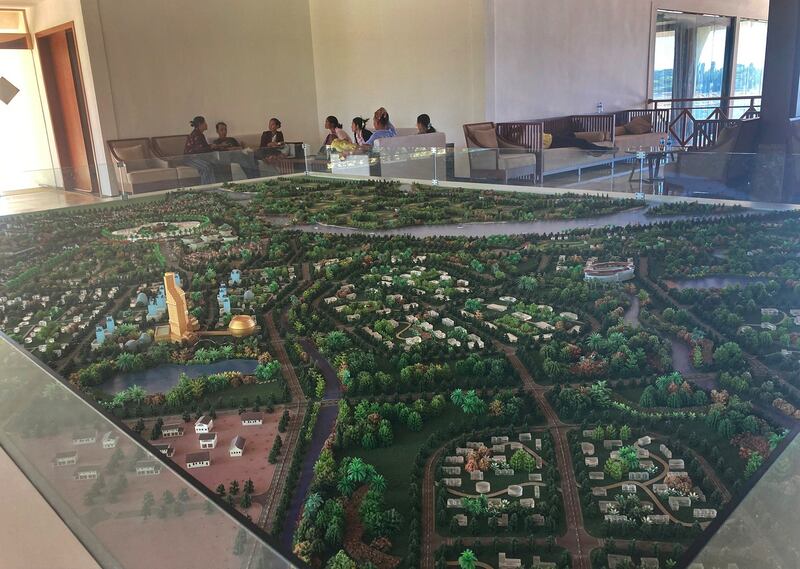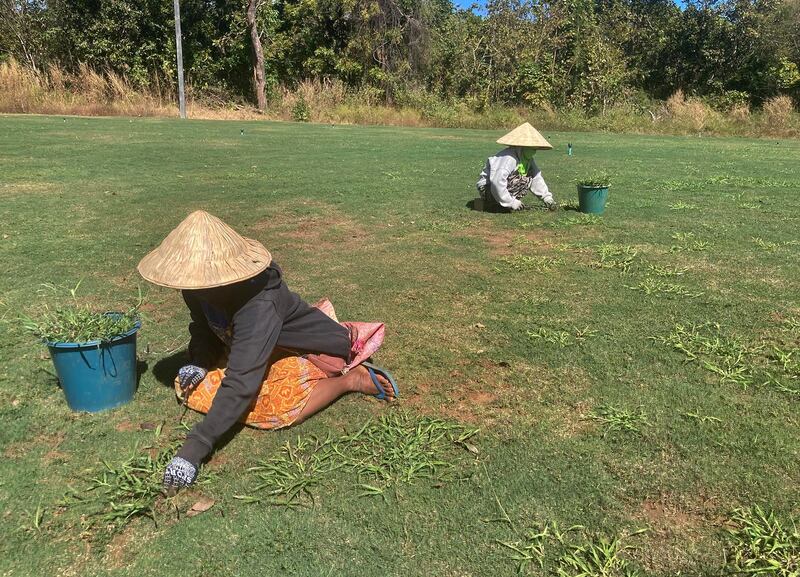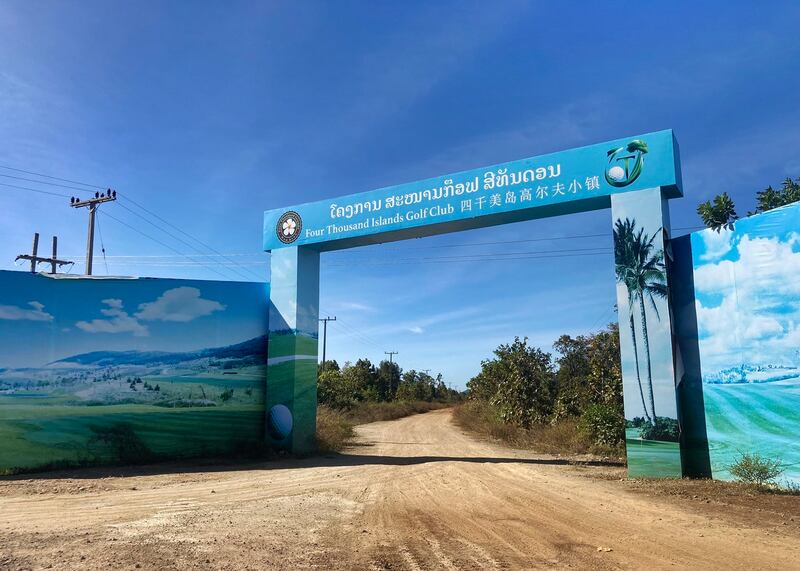Developers in southern Laos aren’t paying enough compensation to local landowners, and about 35 families are refusing to relocate as a Hong Kong-based company prepares to start construction of a 36-hole golf course, several local residents told Radio Free Asia.
The firm received a 99-year concession in 2018 to develop part of the Sithandone Special Economic Zone, or SEZ, near some of the country's most beautiful natural attractions, including Southeast Asia’s largest waterfall, Khone Phapheng, and the Four Thousand Islands, a riverine archipelago near the Cambodian border.
Original plans were to build several five-star hotels and casinos at a cost of more than US$9 billion during an initial phase of construction, but the project in Champassak province’s Khong district has been delayed for several years because of the COVID-19 pandemic.
Construction of basic infrastructure – including electricity, water systems and a ring road – have been completed.

In September, the Laos Mahanathy Siphandone Investment Co. Ltd, paid compensation for farmland to the 35 families as they sought to begin work on the golf course.
Families who owned land near a main road received 800 million kip (US$40,000) per hectare while families farther away from the road got 200 million kip (US$10,000), one of the landowners told Radio Free Asia on Wednesday.
The company still has to pay the full amount of compensation for people’s homes and other properties, according to the landowner, who like other sources in this report requested anonymity for safety reasons.
“It’s too low and most of us aren’t ready to relocate at all,” he said. “We don’t have enough money to move out.”
First payments received
Some villagers have received their first payments of between 50 million kip (US$2,500) and 500 million kip (US$25,000) – but that isn’t enough to buy land and build new homes elsewhere, he said.

A second landowner told RFA that his family hadn’t received any compensation yet.
“They said they are going to pay compensation soon,” he said. “Now, most of us are calling on the authorities and the project developer to reassess our properties and to increase the compensation.”
A Champassak province People’s Council Office official said that local landowners can file a complaint to the members of the council if they are unhappy with their compensation.

An official from the province’s Agriculture and Forestry Department made the same suggestion but added that the maximum payable compensation has been set by law.
“Don’t think that because it’s a private project that they can expect higher compensation,” he said. “That’s not going to be the case.”
Another villager said he was pessimistic about ever receiving much money.
“As you know, we don’t have the right to speak out or against the project,” he said. “But they’re taking advantage of us and claiming that they do everything right according to the law.”
Translated by Max Avary. Edited by Matt Reed and Malcolm Foster.
